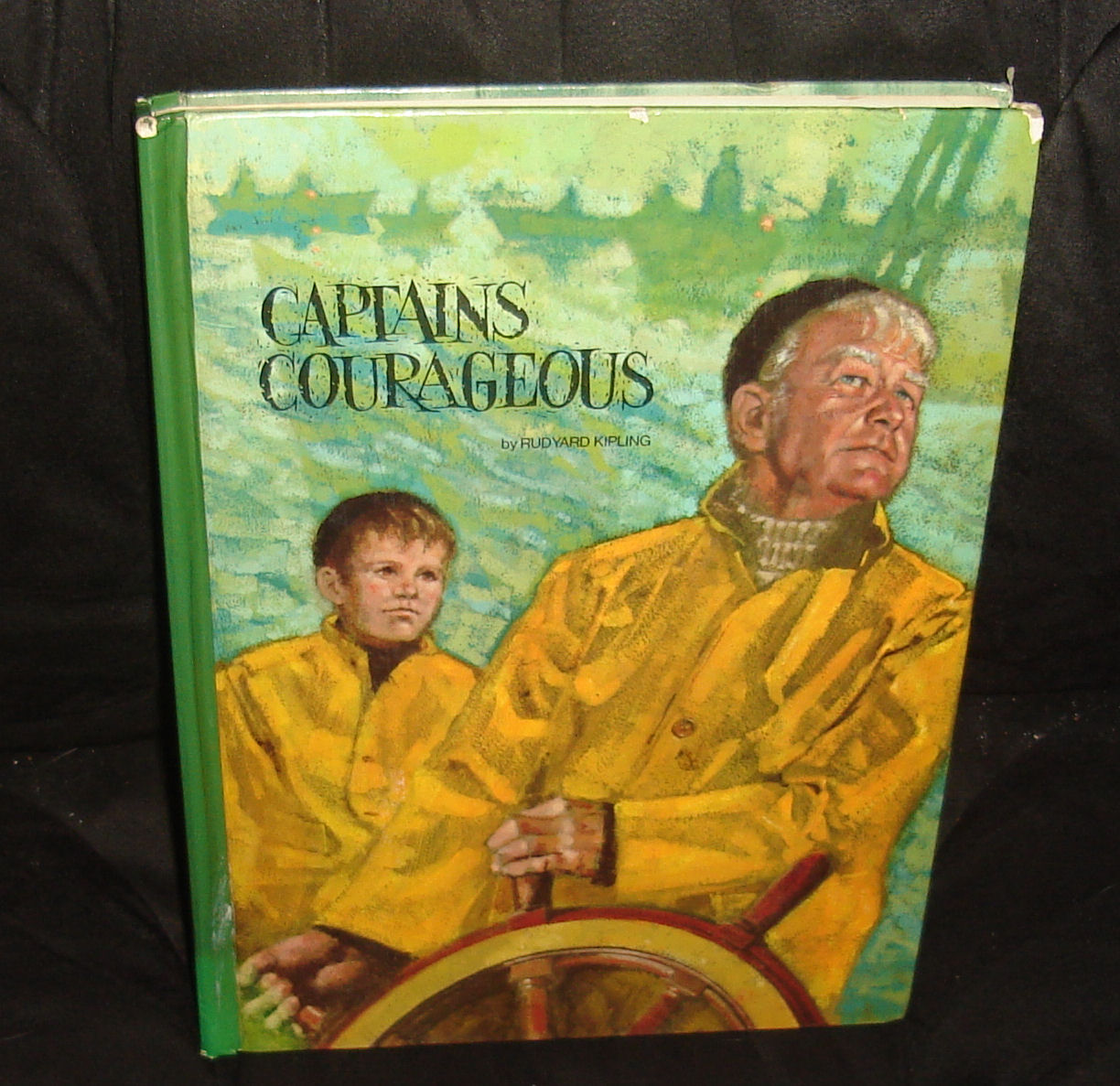I know you’re asking yourself, “Gentle reader, what is the longest a book has sat on Brian’s to-read shelves before he got around to reading it?” Gentle reader, I just want you to know I don’t find it odd in the least that you refer to yourself as “gentle reader” in your own mind. And that longest book, so far, has been about 30 years.

I received this volume as a gift from my aunt and uncle in the late 1970s or early 1980s. We were living in the Berryland housing project in Milwaukee when we received this, a student desk, and a small two-shelf bookshelf from them (and maybe a couple more books). I remember this book distinctly because it was outsized. And to be honest, in 1981, I was not interested in sea stories. I was probably reading The Great Brain series, Encyclopedia Brown, and whatnot.
Fast forward to 2010 (and from 2010, it does seem like a fast forward), and I read historical novels, sea novels, and especially in the recent past, I read Rudyard Kipling. So I took this book from the to-read shelves. It hadn’t been on the to-read shelves for very long, though, since I’m pretty sure I didn’t carry it to Wisconsin nor count it on my to-read shelves for much of my youth. Sometime, though, I plucked it from my mother’s bookshelves or my mother’s estate’s bookshelves and reclaimed it. So I’m being maudlin a bit to say I’ve owned it for 30 years without reading it, and the chain of custody was broken.
But, Brian, what about the story?
This book is a coming-of-age story. A spoiled rich youth falls off of a Europe-bound steamer and is rescued by fishermen from a Gloucester schooner fishing the banks off of Newfoundland. When they don’t believe that he’s really a rich lad, they put him to work on the boat and he learns the value of hard work. Well, there’s the plot. It moves along very well–these are really the equivalent of Young Adult novels, back when YA novels taught children to work hard, grow up, and contribute to society. I think most of them now teach kids to serve Gaia and to love one another, even when the other does not love them back.
The book, as part of the Educators Classic Series, also includes a little afterward that tells about Kipling’s life and that describes sailing throughout history and especially in the era of the novel. You know, these old timey educators’ books with their endnotes and footnotes are pretty interesting if you’re not already an expert in the subject matter (as I am not–I read a Patrick O’Brian book and immediately wanted to take a Master’s level course on ships). In modern times, though, I expect all that extra material is, again, all about serving Gaia and how those damn white men didn’t love one another.
It’s an interesting book, a quick read, and a glimpse into another era from that other era. Kipling’s faster to read and more accessible than Dickens or Hardy and could serve as a good gateway to classical literature. I’ve already promised to read Kipling to my children. No other books are official promises for when they get older. Kipling, and Captains Courageous, are.


